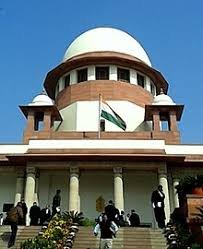Supreme Court judgmentaddresses a custody dispute concerning AadithRamadorai, a 22-year-old US citizen with Ataxic Cerebral Palsy and intellectual disability. The appellant mother sought guardianship and his return to the US, while the respondent father argued for his independent decision-making and continued residence in India. The Court considered medical assessments, including reports from NIMHANS, Bengaluru, which consistently found Aadith’s cognitive functioning to be that of an 8-10-year-old, indicating he cannot make complex independent decisions. Ultimately, the Court ruled in favor of the mother, determining it was in Aadith’s best interest to return to the US to be with his brother and access specialized care.
(A) Constitution of India, Article 136 – Habeas Corpus – Challenge to – Whether Aadith is capable of making independent decisions? – Custody of Aadith, a twenty-two-year-old citizen of the United States of America (US) who has been diagnosed with Ataxic Cerebral Palsy – Reports produced by NIMHANS, Bengaluru and the Evaluation Committee have concurred that owing to his cognitive and physical limitations, Aadith does not possess the capacity to make well-informed, independent decisions, for his own benefit, on complex subject matter, such as long-term residence – In the event there is any confusion or doubt regarding a person’s capacity and ability to make independent decisions and if there is a definitive opinion on disability endorsed by a specialist, domain expert, or a doctor, the Court should give due credence to that opinion – If the expert’s report concludes that the mental or physical age of the person concerned is well below the age of majority, there can be no inference of any ‘implied’ or ‘express’ consent to any act which might have a substantive impact on the consenting person – Unless there are strong reasons to disbelieve an expert’s report to this effect, the Courts must be overly-cautious in coming to a finding contrary thereto – Bearing this principle in mind, conclude that as Aadith was assessed to possess the cognitive abilities of an 8 to 10-year-old child, the reasoning assigned by the High Court, of him consensually living in India, is seriously errant – First issue answered in the negative – Aadith cannot make independent, legally-binding decisions on his own – High Court erred in coming to a finding on Aadith’s alleged illegal detention solely based on his perceived ‘independent’ decision to reside in India with Respondent No. 4.
(Para 21 to 23)
(B) Constitution of India, Article 136 – Habeas Corpus – Challenge to – Whether Aadith’s best interests and welfare would be served by permitting him to continue residing with Respondent No. 4 in India? – Custody of Aadith, a twenty-two-year-old citizen of the United States of America (US) who has been diagnosed with Ataxic Cerebral Palsy – Aadith, his parents, and his younger brother, Arjun, have resided in the US for almost two decades and are all US citizens – The sons were born and brought up in the US together, owing to which they are accustomed to the culture, the activities, the language, and the schooling there – As a natural corollary, they know no other way of life and undeniably have their roots in the US – Regardless of these commonalities, the brothers share certain unique characteristics which perhaps help them understand, relate to, and lean on each other. This emotional relationship is the foundational strength of their self- confidence, sense of security and all other kinds of support, which they are unlikely to receive elsewhere, outside of close family – Regardless of the parents being divorced, the entire family appears to have set up a comfortable life for themselves in the US – Fortunately, neither of the parents is facing any financial difficulties jeopardizing their lives there – Given their established routine and support systems, we seriously doubt whether it is in Aadith’s best interests to continue residing in India – Impugned Judgment of the High Court liable to be set aside with the following directions and conclusions:
- Aadith Ramadorai is incapable of making independent decisions as of now;
- Aadith Ramadorai’s interests would be best served by continuing to reside in the US, alongside his younger brother, Arjun Ramadorai, and under the guardianship of the Appellant;
iii. From the date of pronouncement of this judgement, Aadith Ramadorai shall be deemed to be under the sole custody of the Appellant;
- Pursuantly, the Appellant is directed to return to the US with both the sons within 15 days and ensure that they continue their schooling there. Respondent No. 4 shall not cause any impediment to their return;
- Now that the controversy pertaining to the custody of Aadith Ramadorai stands resolved, the office of US Consulate- General, Chennai will return his US passport and facilitate the Appellant in taking him back to the US immediately;
- The Appellant and Respondent No. 4 shall share their phone numbers, email IDs, and home addresses with each other, so that they can remain in contact for the sake of their children; vii. Neither the Appellant nor Respondent No. 4 shall restrict the sons’ access to the other parent; and viii. Owing to substantial compliance with this Court’s subsequent order dated 08.01.2025, the contempt proceedings are hereby dropped.
(Para 35 to 41)
Sharmila Velamur V. V. Sanjay
Supreme Court: 2025 INSC 299: (DoJ 03-03-2025)






